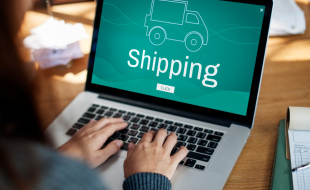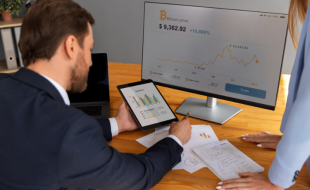Table Of Contents
- Bonus Elements of CBD Fulfilment
- Key Takeaways
- Key Differences Between CBD Fulfillment and Traditional Product Fulfillment
- Regulatory Challenges and Compliance
- The Primary Regulations That Matter
- Product Handling and Packaging Standards
- Distribution Networks and Supply Chain Considerations
- Emerging Trends and Industry Opportunities in CBD Fulfillment
- White Label Solutions and Private Labeling
- International Markets and Expansion
- Innovations in Well-being and Product Diversification
- Conclusion
How Does CBD Fulfillment Differ From Traditional Product Fulfillment? Key Factors and Unique Challenges Explained
Do you have your own online CBD store? Or run a 3PL business? Either way, you need to understand the company’s nuances. eCommerce CBD delivery is far from the traditional product fulfillment roles.
In this article, we will understand the differences between CBD vs Traditional Product Fulfillment in depth. Firstly, CBD fulfillment revolves around diligent legal compliance. It is also a specialized tool for handling and tracking. Standard products may not require this level of finesse.
However, numerous unique parameters and guidelines apply to CBD product deliveries, both at the state level and across borders. The dynamic rules and regulations affect everything from storage to logistics.
Bonus Elements of CBD Fulfilment
Are you exploring the market for more effective ways to store and deliver products? 3PL providers offering CBD fulfillment for eCommerce can help you.
Their customized solutions can keep your products safe and secure. CBDD fulfillment centers also ensure that you comply with all applicable cross-border logistics parameters.
But the most assuring part is that your package will reach the destination, navigating shifting regulations and other logistical complexities.
Key Takeaways
- CBD fulfillment requires unique legal and safety protocols.
- Specialized eCommerce services help stores stay compliant and efficient.
- The industry continues to see new trends and opportunities for growth.
Key Differences Between CBD Fulfillment and Traditional Product Fulfillment
You need to ensure additional legal compliance when fulfilling CBD orders. The regulatory differences between CBD and traditional product fulfillment don’t end there.
There are strict packing guidelines and advanced logistics protocols in place to ensure that products reach their intended delivery addresses without any issues.
The typically applicable FMCG logistics laws differ significantly from the CBD guidelines. The cannabidiol and natural hemp products have to navigate through stricter supervision. The cross-border delivery norms are more complex.
You also need a separate license for last-mile delivery. For instance, you need a license clearance that reinstates the person to whom the product is sold is also legally allowed to use it under local laws.
Regulatory Challenges and Compliance
The legal challenges seem never to end when you are a 3PL provider shifting CBD, hemp, or any other similar product. None of these unique challenges applies in the case of usual SKUs. However, CBD deliveries must follow a set of critical federal guidelines. Often, state-based laws also impact the interim process.
For CBD deliveries, the FDA strictly monitors aspects such as labelling and marketing. Any single violation of FDA regulations can lead to severe penalties for the shipping company. The shipment can also be seized.
The Primary Regulations That Matter
Comparing CBD vs Traditional Product Fulfillment, it is evident that the FDA regulations applicable to conventional packages are straightforward. The package should not contain illegal deliveries. Additionally, you must ship products manufactured by a reputable manufacturer only.
Secondly, the receiver should have all reserved rights to accept and use the parcel. For inland deliveries, the laws are even simpler. However, the hard part begins when we are talking of CBD deliveries.
The first thing that matters is the THC content in each case. Industrial hemp must have less than 0.3% THC. On that note, you must attack lab certifications and other documentations that prove the THC percentage.
The 3PL companies offering CBD fulfillment services must comply with all the unique regulatory requirements.
Product Handling and Packaging Standards
CBD products are particularly sensitive to contamination and degradation, requiring storage environments that meet food-grade or pharmaceutical-grade standards.
This contrasts with traditional fulfillment, where regular storage conditions often suffice for non-perishable items. Packaging must be tamper-evident, child-resistant, and fully labeled with cannabinoid content, origin, and batch number.
For shipments containing cannabidiol or hemp derivatives, labeling regulations also frequently require QR codes linking to lab results. Packaging facilities are often inspected to meet both FDA and state standards, making attention to detail mandatory at every step.
This level of scrutiny is much higher than what is typical for general products.
Distribution Networks and Supply Chain Considerations
You may cover multiple states with unique federal and state laws regarding CBD deliveries within your distribution network. Therefore, a lot of companies are not ready to move CBD nd hemp products.
Companies with specialized logistics licenses can assist you in delivering your products. So, it’s time to forge a long-term partnership with such a vendor!
Inventory and fulfillment centers may need to be strategically located to comply with state rules and reduce shipping delays. This specialized approach introduces complexity to the supply chain, potentially affecting fulfillment costs and delivery times.
Emerging Trends and Industry Opportunities in CBD Fulfillment
The CBD industry is experiencing significant growth across white-label manufacturing, global trade, and expanded product categories. Business development strategies now factor in regulatory compliance, product differentiation, and scientific studies related to health and well-being.
White Label Solutions and Private Labeling
White-label and private-label services enable you to scale your CBD business quickly. With these solutions, you can brand existing formulations—such as tinctures, topicals, and supplements—without needing to manage manufacturing. This enables you to focus on marketing, sales, and customer connections.
Major players, such as Golden Triangle Ventures, are investing in health divisions and natural wellness formulations. With products ranging from full-spectrum oils to targeted cannabinoids, you can respond rapidly to market trends.
A table like the one below illustrates common white label CBD categories:
| Product Type | Typical Uses |
| Tinctures | General wellness, anxiety support |
| Topicals | Pain relief, skincare |
| Edibles | Sleep, relaxation |
| Capsules | Targeted health benefits |
By partnering with an established CBD manufacturer, you reduce production timelines while leveraging their expertise in compliance and safety.
International Markets and Expansion
International demand for CBD is increasing, particularly in countries such as Japan and Mexico. Navigating regulations, import/export laws, and product labeling in these regions is critical for successful expansion.
Japan has stringent requirements around THC content, but the country is gradually opening to CBD for natural wellness and well-being applications. Mexico is expanding its legal framework, providing new opportunities for businesses following proper compliance.
You must also monitor evolving regulatory trends, as discussed in articles on global regulatory developments related to CBD use in food and food supplements. Understanding clinical trial results involving products like Epidiolex and research on CBD for epilepsy, cancer, or multiple sclerosis will help you tailor your offerings and market approach.
Innovations in Well-being and Product Diversification
CBD’s potential to support well-being has inspired a wave of new product innovation. Beyond oils and capsules, you now see clinical-grade products entering the market, some backed by evidence from formal clinical trials.
New categories target areas such as pain management, skin health, stress relief, and neurological health, giving you more options to meet customer needs. Brands are also blending CBD with other natural wellness ingredients, such as adaptogens or botanicals, to enhance product differentiation.
Product diversification is key, as consumers are seeking items tailored to specific conditions, including those related to cancer care, epilepsy management, and multiple sclerosis. By staying updated on scientific developments and evolving wellness trends, you position your business at the forefront of the industry.
Conclusion
While comparing CBD vs Traditional Product Fulfillment, it was evident that fulfilling traditional orders is much easier. But CBD deliveries are equally tough. You must navigate through your delivery’s complex regulatory framework, each unique with its own set of requirements.
Meanwhile, you also have to manage a more sensitive inventory. Your shipping partner should also have a CBD shipping license. Otherwise, you can’t ensure smooth deliveries.
But what should you do to select the right delivery partner? Firstly, you need to examine the quality control mechanism of the partner. Secondly, check the transparency level of delivery processes. A lot of vendors use illegal networks to siphon CBD products across territories.
For more detailed insights on the logistics involved in CBD fulfillment, visit this guide on hemp and CBD product fulfillment.
Read More:















